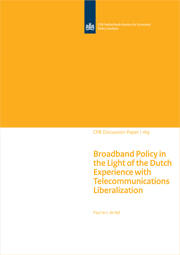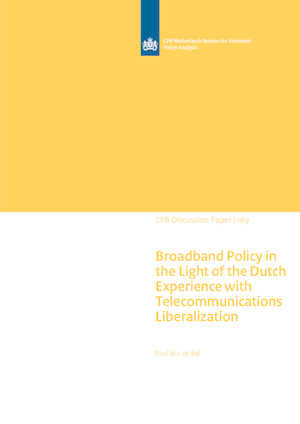Broadband Policy in the Light of the Dutch Experience with Telecommunications Liberalization
Vernieuw toezicht op telecommunicatie en media

We are sorry, unfortunately there is no English translation of this page.
Is the gradual introduction of facilities-based competition, by fine-tuning access regulation, working as intended? What can one learn from the Dutch experience?
More than a decade has passed since the liberalization of telecommunications in the Netherlands. Nevertheless, the regulator is still mandating access to local access networks, and the incumbent and cable operators have been dragging their feet on upgrading their networks to fiber-based next generation networks. Is the gradual introduction of facilities-based competition, by fine-tuning access regulation, working as intended? What can one learn from the Dutch experience? As scale economies are persistent and broadband networks are becoming an integral part of our critical infrastructures, it is important to reassess the role of the government, on issues ranging from network neutrality to broadband penetration, universal service, and security. The outcome of such an assessment could be incongruent with the blueprint of competition held on to by policymakers and regulators.
